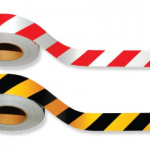
A lot of people are clueless about the benefits of the most basic types of insurance, so when presented with some more specialised types of insurance, such as the motor trades policy, a lot of people are clueless to the point that they’re scared of it and hesitate whether or not they should get it. If they do decide to get it, they don’t know what their insurance should cover.
The truth is, every business is different, and there are numerous different insurance policies available. That being said, sometimes it’s better to leave it up to professional brokers or insurance agencies to help you develop the right motor trades insurance policy. And there really isn’t any shame in not knowing what type of motor trades insurance policy you need as a mechanic, for example, just like there’s no shame in an insurance broker not knowing how to fix his vehicle.
It’s 2017, and I’d rather pay someone to do a great job at whatever it is I need, than to try and do it myself and do a decent job. Hiring an insurance broker saves time, money and ultimately nerves. So in order to get a better picture on how motor trades policies work, how they’re beneficial to your business, and which businesses need them, here are some general tips.
Motor trades policies can cover a salesperson, a mechanic, or even a valeter. Simply put, if you’re working with vehicles, chances are you could use a motor trades policy. Such a policy would cover all the vehicles you drive for your business, including customer vehicles. This is important to get right in order to get the best value for your money from the coverage.
Another example is the road risk coverage, which provides you with coverage for vehicles in possession of your business, and vehicles owned by your company. However, this won’t cover any vehicle you drive at any time, so you have to be careful when you drive company owned vehicles when not on the clock.
Lastly, there’s the liability cover, which covers customers that come into your place of business. It basically means that if by any chance a customer is involved in an accident on your place of business, you’ll be covered for any claims they make against you. This is one of the most common insurance covers people sought after, as without them, their businesses can suffer a considerable financial loss. The liability cover can also include defective workmanship claims and claims by employees that they have suffered an injury or illness during their employment.


